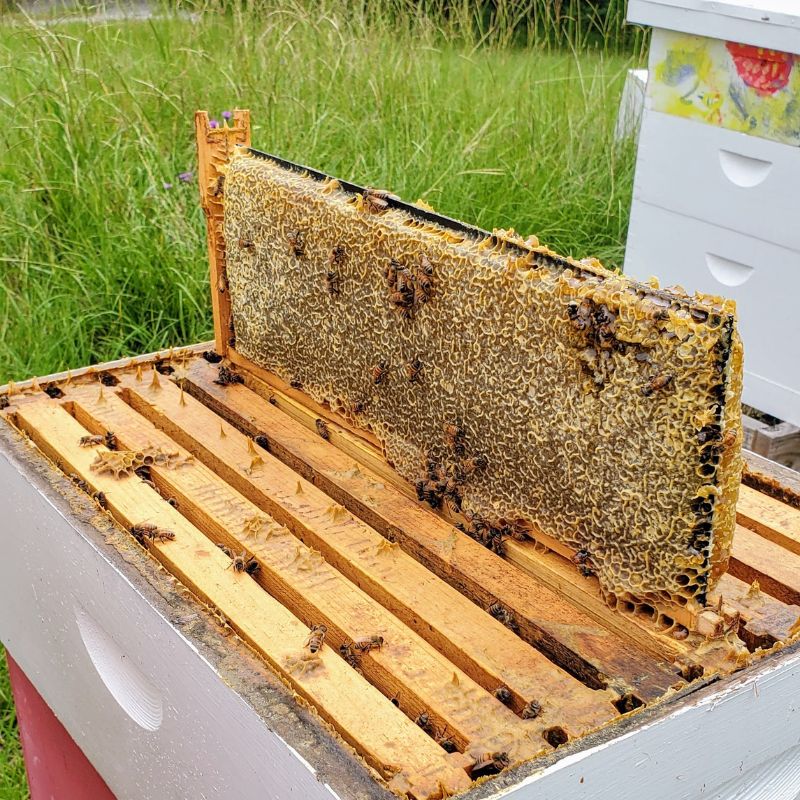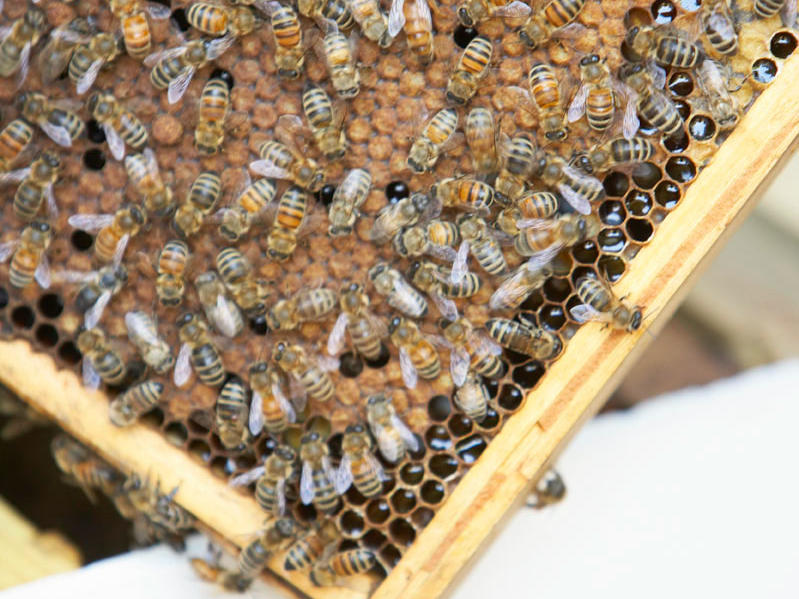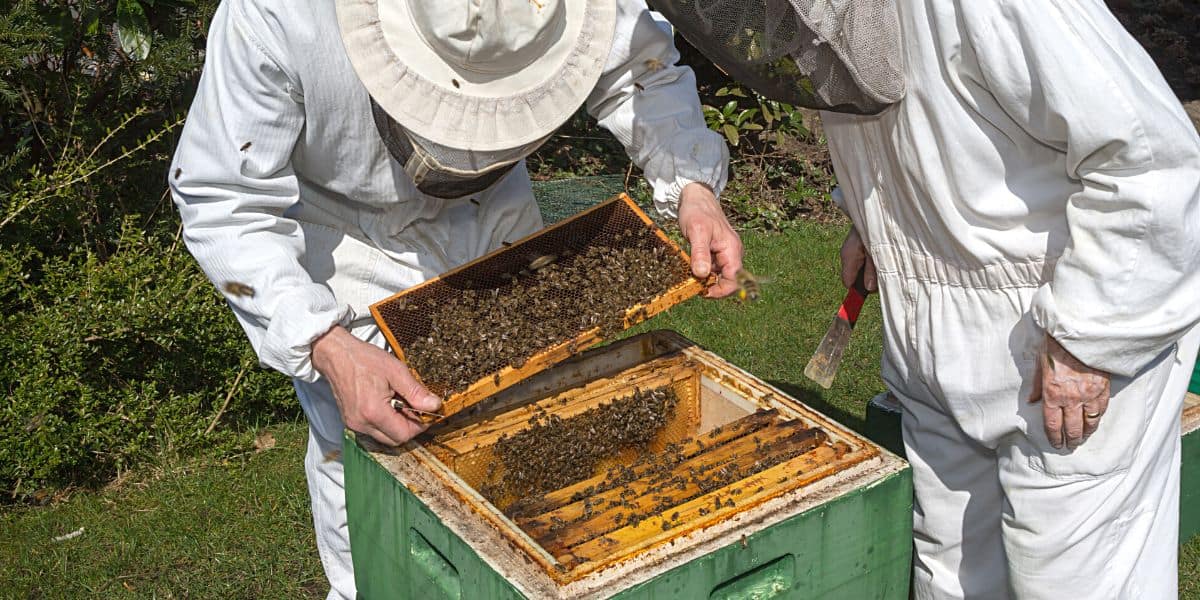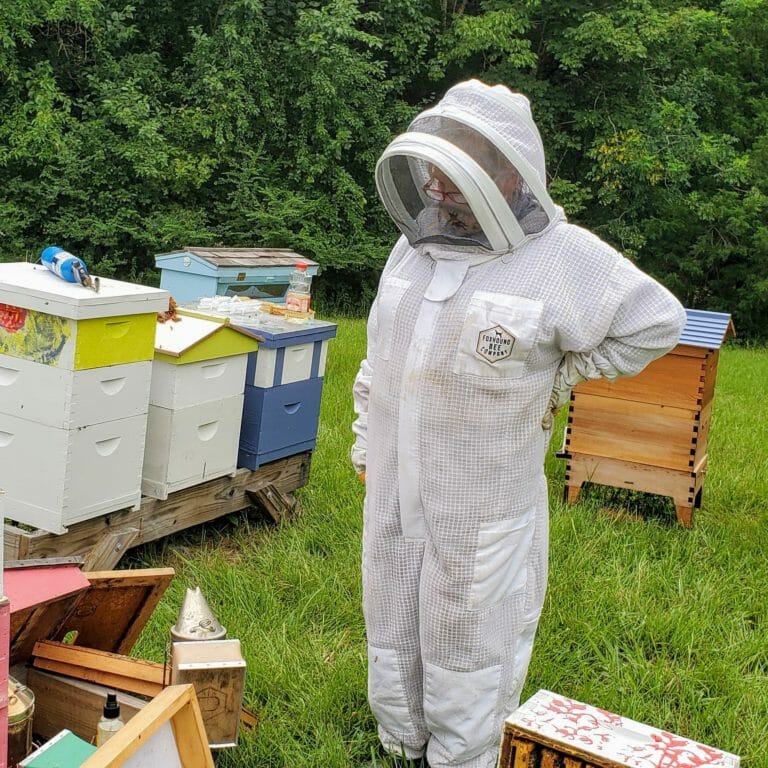
Beekeeping: A Rewarding Yet Challenging Endeavor


Beekeeping, the practice of managing bee colonies for the production of honey, beeswax, and other bee products, has gained immense popularity in recent years. While the allure of golden honey and the buzz around sustainability might entice aspiring beekeepers, it’s crucial to realistically assess the challenges and rewards that accompany this unique endeavor.
I. Introduction
Delving into the world of beekeeping, we uncover a captivating blend of nature’s wonders and the potential for financial rewards. However, it’s essential to approach beekeeping with a clear understanding of the demands and complexities involved. This outline explores the intricacies of beekeeping, examining the challenges and rewards that make this practice both demanding and fulfilling.
A. Defining Beekeeping
Beekeeping, also known as apiculture, encompasses the management of bee colonies, commonly referred to as hives. Beekeepers play a vital role in maintaining healthy bee populations, ensuring the pollination of essential crops, and providing a range of natural products with various health and commercial applications.
B. The Significance of Beekeeping
Bees are not only nature’s pollinators, but they also contribute significantly to the global economy. Studies have shown that the economic value of bee pollination far exceeds the direct value of bee products. Healthy bee populations are crucial for the production of fruits, vegetables, and oilseeds, ensuring food security and supporting agricultural livelihoods worldwide.
II. Unveiling the Challenges of Beekeeping
While the rewards of beekeeping can be substantial, the path to success is not without its challenges. Aspiring beekeepers must be prepared to face various obstacles, ranging from physical demands to intricate management techniques.
A. Physical Demands and Labor
Beekeeping is a labor-intensive activity that requires regular attention and care. Beekeepers must dedicate time to inspecting hives, managing bee health, harvesting honey, extracting wax, and processing other bee products. This hands-on approach demands physical stamina and a willingness to work outdoors in various weather conditions.
B. Learning Curve and Knowledge Acquisition
Successful beekeeping requires ongoing learning and a deep understanding of bee biology, hive management techniques, and disease prevention strategies. Aspiring beekeepers can benefit from taking beekeeping courses, joining beekeeping associations, and seeking mentorship from experienced beekeepers. This continuous learning process ensures that beekeepers can adapt to changing environmental conditions, emerging diseases, and evolving beekeeping practices.
C. Risk of Colony Loss
Bee colonies are susceptible to various threats, including weather extremes, disease outbreaks, and pesticide use. Beekeepers need to be prepared for the possibility of losing colonies, which can significantly impact their honey production and income. Managing these risks requires vigilance, proactive disease control measures, and a deep understanding of local environmental factors.
D. Regulations and Permits
Depending on your location, there might be regulations or permits required for beekeeping operations. It’s essential to research and comply with local regulations regarding hive placement, apiary size, and bee product sales. These regulations aim to protect public health, prevent the spread of diseases, and ensure sustainable beekeeping practices.

III. Embracing the Rewards of Beekeeping
Despite the challenges, beekeeping offers a unique set of rewards that make it a fulfilling and enriching endeavor.
A. Connection with Nature and Conservation
Beekeeping provides a deep connection with the natural world, fostering an appreciation for the intricate balance of ecosystems and the vital role of bees in maintaining biodiversity. Beekeepers play a crucial role in conservation efforts, contributing to the protection of bee populations and the health of our planet.
B. Personal Satisfaction and Learning
Beekeeping offers a sense of personal satisfaction and accomplishment as beekeepers witness the growth and productivity of their colonies. The process of caring for bees and harvesting their products provides hands-on learning opportunities, teaching valuable skills in observation, problem-solving, and adaptation.
C. Potential for Financial Gain
While beekeeping may not be a quick path to riches, it can potentially generate income for those who are dedicated and manage their operations effectively. Beekeepers can earn from the sale of honey, beeswax, pollen, propolis, and royal jelly. Additionally, some beekeepers offer pollination services to farmers, providing an additional revenue stream.
D. Community and Sharing of Knowledge
Beekeeping fosters a strong sense of community, connecting beekeepers with shared interests and a passion for these remarkable creatures. Beekeeping associations, workshops, and online forums provide platforms for knowledge sharing, collaboration, and mutual support.

Is Beekeeping Right for You?
Before diving headfirst into beekeeping, it’s crucial to assess your personal motivations, resources, and commitment level. Here are some key questions to consider:
-
Are you passionate about bees and the environment? Beekeeping requires a genuine interest in these fascinating creatures and a desire to contribute to their well-being. Observing their complex social structures and the vital role they play in pollination can be a deeply rewarding experience.
-
Do you have the time and dedication to care for your hives? Beekeeping demands regular attention and cannot be treated as a passive investment. Regular inspections are necessary to monitor colony health, identify potential problems, and ensure optimal honey production.
-
Are you comfortable working with insects and potentially getting stung? While bee suits offer protection, stings are a part of beekeeping, and some individuals might have allergies that make it unsuitable for them. It’s essential to assess your tolerance for stings and potential allergic reactions before getting started.
-
Do you have the financial resources to cover the initial investment and ongoing expenses? Beekeeping requires an upfront investment in equipment, including hives, frames, bee suits, tools, and a vehicle for transporting hives. Additionally, there are ongoing costs for supplies like hive medication and honey extraction equipment.
-
Do you have access to a suitable location for your hives? Ideal locations offer access to diverse floral resources, have adequate sunlight, and are away from areas with high pesticide use. Additionally, local regulations might restrict hive placement within city limits, so research is crucial.
VI. Getting Started with Beekeeping
If you’ve weighed the challenges and remain enthusiastic about beekeeping, several resources can help you on your journey:
-
Beekeeping Associations: Joining your local beekeeping association connects you with experienced beekeepers who can offer guidance and support. These associations often organize workshops, demonstrations, and mentorship programs to equip beginners with the necessary skills.
-
Beekeeping Courses: Numerous online and in-person courses provide valuable knowledge on bee biology, hive management techniques, and honey production. These courses can be a great way to gain essential skills before starting your own apiary (bee yard).
-
Mentorship Programs: Connecting with a seasoned beekeeper for mentorship can provide invaluable hands-on learning and troubleshooting help. Observing experienced beekeepers manage their hives and tackle potential issues can offer significant practical knowledge.
-
Beekeeping Books and Online Resources: A wealth of information is available through beekeeping books, websites, and forums. These resources offer insights and advice from experienced beekeepers, covering various aspects of beekeeping, from hive management to honey extraction techniques.

VII. Beekeeping Beyond Honey: Exploring Additional Products and Services
While honey is often the first product that comes to mind when considering beekeeping, these industrious insects offer a variety of other valuable products and services:
-
Beeswax: This natural wax has numerous applications, used in candles, cosmetics, and furniture polishes. Beekeepers can harvest beeswax from their hives and sell it to crafters or use it to create their own beeswax products.
-
Pollen: Packed with essential nutrients, bee pollen is becoming increasingly popular as a health supplement. Beekeepers can collect pollen using pollen traps placed on the entrance of the hive and sell it to health food stores or directly to consumers.
-
Propolis: This resinous substance produced by bees has potential antibacterial and antifungal properties. Beekeepers can harvest propolis from hives and sell it in tincture or capsule form, though regulations and licensing might be required depending on your location.
-
Royal Jelly: This milky secretion produced by worker bees is known for its purported health benefits. While the commercial market for royal jelly can be competitive, it can be another potential source of income for beekeepers with large operations.
-
Pollination Services: Beekeepers can lease their hives to farmers for pollination services, particularly in areas with high-value crops like almonds or berries. This can be a lucrative income stream, especially for beekeepers with a large number of healthy colonies.
Beekeeping goes beyond simply harvesting honey. By exploring these additional products and services, beekeepers can diversify their income streams and contribute significantly to sustainable agriculture.
IV. Conclusion
Beekeeping presents a unique opportunity to combine a passion for nature with the potential for personal fulfillment and financial rewards. However, it’s not a venture to be taken lightly. Success requires dedication, knowledge, and a willingness to face challenges. By carefully considering the factors mentioned above, aspiring beekeepers can make informed decisions